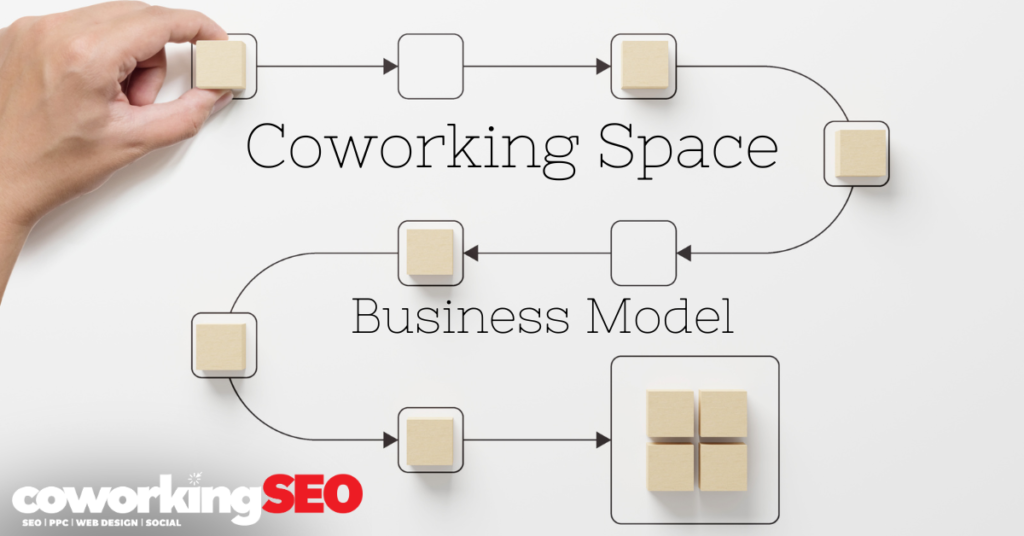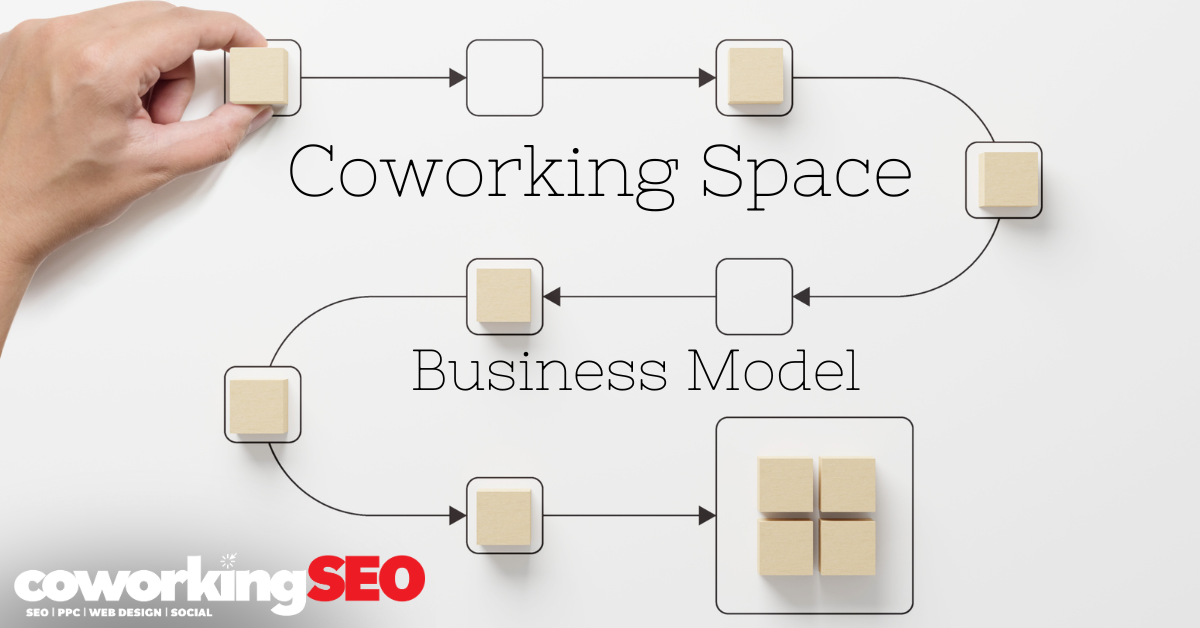Are you wondering what makes a good Coworking Space Business Model? People tend to think it’s all about the pricing model for coworking spaces or the business plan. To make the most of lead generation, property owners and startups need to use a standard template for revenue models. A revenue model is the primary way a business generates revenue. Revenue models generally include information about the products or services the business intends to provide, the target markets, and projected costs. A business model is another name for a revenue model. Two major components are pricing and expenses.

What is a Coworking Space?
You may have many questions about coworking spaces, including what they are, how they work, and how to generate revenue. Coworking spaces are shared workstations. Coworking spaces offer low-cost offices for people who don’t want to work alone in a cafe or home office. Contrary to popular perception, coworking spaces are a business model that is different from the traditional office environment. The business model and revenue generation are also different.
How do coworking spaces generate revenue?
Renting
Two different perspectives can be taken on renting as a revenue-generating method for coworking spaces.
- Investing in infrastructure for office and renting it. Like any workplace, a coworking space has a set number of workstations that are leased out to individuals or groups. Renting out workstations is a major source of revenue for many coworking spaces. Several coworking spaces rent out cabins and separate work areas in addition to private workstations. Many of them offer a flexible price option, where the consumer can choose from different customizable options.
- Renting out a workspace that you have purchased. Many coworking spaces with open halls and meeting rooms offer these facilities to host events, such as lectures, meetings, and training sessions. These venues are a good alternative to other options that require a lot of resources. They also offer enough space to host these events.
Virtual Renting
Virtual offices are offered by many coworking spaces. A virtual office, while the staff is working from home, provides a professional address for mail, deliveries, and advertising.
Virtual renting is a great option for business owners and creatives who wish to work at home, but need a professional office space.
Promotion and Marketing
Coworking spaces are often used by businesses as a marketing tool because they have a diverse range of workers, companies, and work structures.
Even seminars and trainings held in coworking spaces act as a method of marketing and generating revenue.
Partnerships and Investments
Coworking is all about communication and connection. Coworking spaces allow you to connect with local investors and businesses.
You can use this to improve your company’s services, membership plans, and quality.
A good collaboration and investment will bring value to your members, increase your income, and generate new leads. Collaborations are often budget-friendly and allow you to boost revenue.
You could partner with nearby fast food joints to provide their meals, snacks, and refreshments.
This will not only provide an opportunity for socialization and as a bonus amenity but also expand your business by providing discounts and deals to customers who use the facility.
Memberships and Subscriptions
Each product initiative has features and functionality that can be accessed by paying a small fee.
A premium membership or VIP subscription is an annual fee that gives you access to exclusive facilities.
It is usually paid once per year. This revenue-generating method also ensures customer loyalty.
What to Consider when building a coworking space revenue model
Revenue Leads
What are your revenue sources? From memberships, perhaps? Renting out space is a good way to make money.
Coworking is dominated by two main income streams: membership and space rental.
If your company plan relies primarily on membership income, a larger portion of the budget may be spent on improving membership experiences, upgrading facilities, etc.
You can also choose to prioritize the latter or both. The ability to target your leads is crucial for generating revenue.
Target Audience
Profitability can also be influenced by which community you expect to generate a large percentage of your revenue.
Coworking spaces are used by many different groups, including freelancers and creatives, professionals who work from home, corporate teams, and entrepreneurs.
Coworking is not limited to one demographic. It is dependent on the company’s goals and vision.
Your revenue will be significantly affected by your ability to satisfy the unique needs of your target audience.
Learn more about coworking spaces by clicking here.
Cost
How much money do you invest in the coworking model to make it work? How much money are you left with after all these costs?
You can assess your future property development and potential profit by answering all of these questions.
Consideration should be given to the costs of installation, maintenance, employee salaries and other charges. What’s left?
Before you decide on a coworking space model of revenue, be sure that it is going to do your business good.
Coworking Space Pricing Model
In recent years, the style of pricing for coworking spaces has changed. Pricing has been influenced by the 2020 pandemic. Some companies offer discounts to loyal customers.
It’s obvious that as businesses reduce staff and adopt flexible work practices, with fewer coworkers at a given time in the office, a pattern will develop of reduced office space.
There are some things you should consider when it comes to pricing coworking spaces to improve your revenue model. It’s important to compare expenses and assess their scope, as different places may have different features.
In most cases, the following items are included in the base fee:
- Internet access
- Printing, photocopying, and other services such as laminating or scanning.
- Simple reception services
- In the kitchen, you can prepare food and drinks like coffee, tea, or snacks.
When considering the cost structure for your coworking space, there are many additional features that you can choose from.
There is no set way to create a coworking space price model. A private office in the south might be cheaper than a shared one in the north.
We recommend, however, that you conduct extensive research and analyze your coworking model strategically.
Coworking Space Business Plan
A well-crafted coworking space business model is needed to create an effective revenue model. Here are a few tips to help you create one.
1. Find What Works for You
This section is not about how important it can be to find the right cultural fit in your area.
We’re not talking about the importance of buying a location that is large enough to accommodate all your community members while allowing you to prosper as an owner.
It is impossible to cover all the costs associated with a mortgage, a rental, staff, management, and staffing if your workspace is only 1,500-3,00 square feet.
A large space with high occupancy rates should produce higher revenues.
The recovery of your operating costs is possible by using small coworking spaces.
2. Clear Objectives
Your coworking space should have a clear objective. If you don’t want random people to come into your coworking space with no apparent reason, then you should be lucky.
The ideal coworking space has core values with which each member of the community can identify. Knowing “why” can help you start your coworking spaces.
You’ll have to change your approach as your coworking business grows. But having a clear vision will ensure that these changes are well-intentioned, rather than forcing you in two directions.
3. Location, Location, Location!
Before you sign a contract, consider why the rent is so cheap. What is the location? It could be that the space is located in an area with a poor transit system, even though it’s a great price. It is easier to fill workstations at a coworking area if it’s centrally located. You’ll need a minimum occupancy rate of 80% to thrive. If your property is located in a rural or remote area, this won’t be possible.
4. Discover what’s happening in the industry
Find out how the coworking industry is developing in your area and nearby. You can also ask other managers of coworking spaces in the area for statistics and perspectives. Post your questions in coworking forums via social media. Some surveys provide valuable data about the growth of coworking.
5. Learn Your Target Audience
What type of client are you seeking and what kind of coworking space do they prefer to use?
Some coworking spaces serve big companies, while others focus on smaller groups. If you know more about the community that you want to reach, it will be easier to plan for cost, location, facilities, and promotion.
6. Budgets, capital plans, and financial plans
A financial plan is a crucial part of starting your own coworking space. Here are key aspects to start: budget, expected earnings, monthly revenue, setbacks, and your exit plan. It isn’t easy to decode these strategies. You should however base your strategy on reasonable estimates that you can get from data and research. You’ll need to have a solid financial plan if you want investors and partners.
7. Create A Balanced Pricing System
Charge less for workstations to keep your community active. A price that is too low will make prospective members think your offer is too cheap and not standard. You can charge what you think your service is worth. Community members are willing to pay more for exceptional services if they see the benefits, like increased productivity and earnings.
8. Create your ideal team
Owning a business means doing everything you can yourself. This strategy reduces your operating costs. You’ll need to hire a reliable, efficient staff because most people aren’t specialists in all areas. As a group, coworking spaces require a manager with operational experience, a marketer, and expertise in coworking software. You can do some of the work yourself if you’re an expert. But if not, create a team and/or hire freelancers for other tasks. Think about potential partners, investors, and other employees who can help improve the quality of your coworking area.
9. Create A Marketing Strategy For Coworking Spaces
Your coworking space is for motivated people to achieve, innovate, and thrive. A coworking marketing strategy is just as important as any other product when it comes to selling to your target audience. You can place ads in local papers or niche publications that suit your target audience, depending on your budget. In the new age, an attractive website and a strong social media presence are essential for both marketing and advertising. Word of mouth is more trusted by consumers than traditional advertising. Therefore, promoting a brand through community members can be extremely beneficial. It is therefore a good idea for you to reward your members who refer others to the coworking space. You should also consider setting up a booth at trade shows where you can distribute promotional materials to passersby.
Always focus on your core message. This will simplify your marketing strategy.
10. Concentrate On A Certain Niche
Without a specific niche, your coworking business will be too broad. This makes it difficult to develop a successful business strategy.
It takes extensive research to find out what makes your coworking community different from others. You should focus your efforts on those employees that your competitors overlook if they cater to only one type of employee.
Look at what other communities have done and find out which lucrative markets they are not yet addressing.
Coworking Business Losses are Frequent
It’s important to identify the typical losses in business and determine ways to increase profits.
You can use them to present a clearer view, so you can optimize your business strategy and minimize losses.
Here are some of the most common losses that coworking spaces experience:
- According to reports, leasing space from the owner of the property costs a significant portion of the total loss.
- The operating expenses are also a major source of losses.
- Marketing and advertising are considered to be a major expense.
- Salary and Benefits of Employees
- Maintenance costs
- Installation of equipment
The Key Takeaways
When developing your coworking space model, it’s important to evaluate the best models using some basic criteria.
To create something amazing, you must first evaluate something fantastic.
Location, innovation, and community are three criteria that can be used to identify a coworking area with a successful revenue model. Coworking spaces are primarily designed to create a collaborative community for freelancers, workers, and companies. Coworking spaces were never designed to maximize profits. It is not realistic to expect coworking spaces will run at a profit. Everyone is happy in a profitable coworking space: staff, members, and of course the owner. A lucrative revenue model for coworking spaces can indicate you have succeeded in creating a community, which is what coworking spaces strive to achieve. A coworking Software that is suitable for your business can improve the efficiency of your operations and revenue. Booking Ninjas offers a coworking software that manages your rental space, vacancies, and daily operations. Book a meeting for more information!







